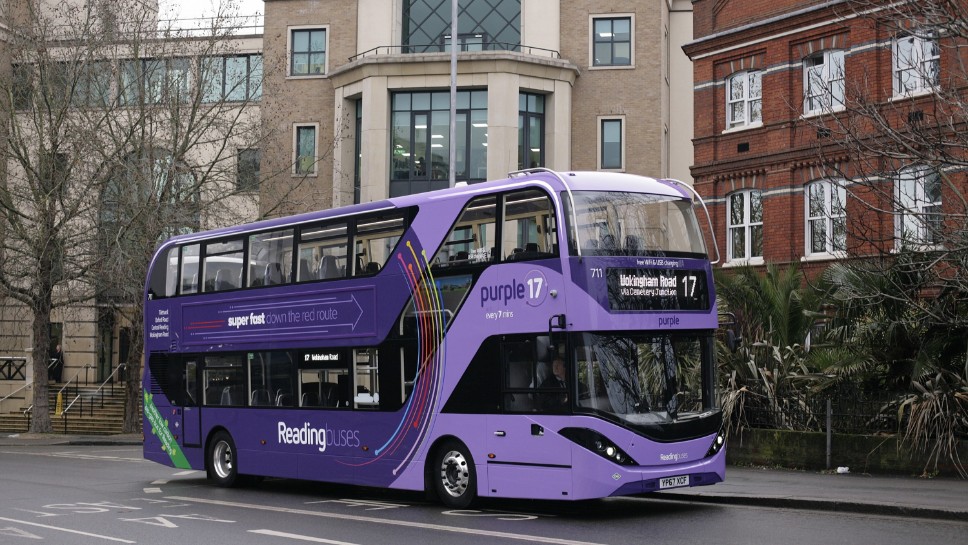
Council secures £4.7m funding for town’s first battery electric bus fleet
- Zero-emission electric double deck buses will run on routes 17 & 21
- Funding will allow installation of charging infrastructure at Reading Buses depot
- Investment will help reduce carbon emissions and improve air quality
Two of Reading’s most popular bus routes will be served by the town’s first battery electric bus fleet following a successful bid for funding by the Council and Reading Buses.
The Department for Transport announced today (22 March) that Reading had secured £4.7m from the Zero Emissions Bus Regional Area (ZEBRA) fund.
The funding will see the delivery of 24 electric double deck buses on routes 17 and 21 and the installation of charging infrastructure at the Reading Buses depot.
Reading Buses already has one of the most environmentally friendly fleets in the country and the addition of electric buses will support the Council’s aims of reducing carbon emissions, improving air quality and protecting the health and wellbeing of Reading residents.
The electric buses will enter service in the next two years, starting with route 17, which runs from Tilehurst in the west of Reading to the Three Tuns in the east.
Purple 17 is the most frequent service in Reading as well as being the first to run 24 hours a day and accounts for one in five of all bus passenger journeys in Reading. The route travels through some high-density residential areas where pollution from private vehicles remains high.
The claret 21 service also runs 24-hours from Reading Station to Rushey Way, in Lower Earley, via Reading University.
Reading Buses is owned by Reading Borough Council and has always been at the forefront of innovation. It has a fleet containing 66 gas buses which will be supplemented by the new electric vehicles and cascaded on to other routes. The company has been trialling different zero emission vehicles around Reading over the last year.
The DfT funding provides for 75% of infrastructure costs at the Great Knollys Street depot and 75% of the difference in cost of a zero-emission bus compared to a regular diesel bus, with the remainder being funded by Reading Buses.
James Crosbie, Assistant Director for Planning, Transport and Public Protection, said:
“The introduction of 24 electric buses to Reading is very exciting and highlights our commitment to improving air quality and the health of residents in the borough.
“The Council’s £26m Bus Service Improvement Plan has already made travelling by bus easier and cheaper and introduced new, convenient bus routes for residents. New bus lanes will make getting around the borough on public transport even faster and more reliable.
“These electric buses will help reduce carbon emissions in built up residential areas and supports our aim for Reading to be net zero carbon by 2030.”
Robert Williams, Chief Executive Officer of Reading Buses, said:
“We are delighted to have secured this funding to enhance our fleet with zero emission vehicles, which will provide even quieter, smoother journeys for our customers, and demonstrate the significant environmental benefits of switching to public transport.
“We hope that this will be yet another reason for people to give our service a try, helping to encourage a reduction in private car emissions and congestion, both of which have such a significant impact on all the residents of the town.”
